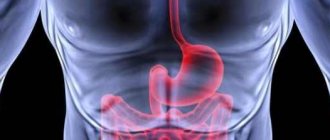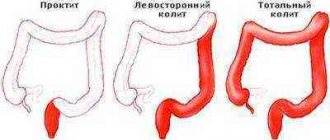Everyone has experienced the effect of belching after eating. They don’t pay attention to a single one, without odor, without discomfort. The phenomenon of pain signals serious problems in the gastrointestinal tract.
When belching appears, you need to understand that this is a symptom that indicates a specific disease. It all depends on the characteristics of the process. For a doctor, when making a diagnosis, it is necessary to know the sensations after belching: sour, there is bitterness, the smell of rottenness, pieces of food or liquid.
The release of gases through the mouth is conventionally divided into two categories. Category 1 – cause in human physiology. Category 2 – malfunction of the gastrointestinal tract.
Causes of pain with belching air for physiological reasons
The occurrence of unpleasant sensations in the stomach and esophagus is sometimes associated with the structural features of the body and the actions performed. In such cases, it is easy to restore health; as soon as something is removed or eliminated, the body returns to normal.
Poor nutrition
The person eats quickly, the food is not chewed thoroughly, the patient talks a lot at the table. Actions do not create a favorable environment for proper digestion of food. Along with food, air enters the stomach and is expelled through the esophagus in the form of belching.
Bath after meals
This is a pleasant procedure, but it is prohibited to carry out it earlier than 2 hours after eating. In a hot bath immediately after eating, a disruption of the blood supply to the digestive organs occurs. Blood leaves the internal organs and rushes to the legs. As a result, gases form in the esophagus, headaches, and abdominal pain.
Tight clothes
By knowingly putting on tight clothes and tightening the belt too much, a person puts pressure on the stomach and internal organs, forcing them to work in a stressful state. The compressed digestive tract malfunctions and painful sensations and belching appear.
Binge eating
A person who is not accustomed to limiting the amount of food he eats ends up with constant dysfunction of the stomach and intestines. The tract does not have time to digest incoming food, food accumulates in the gastrointestinal tract, causing fermentation and putrefactive reactions. As a result, pain and belching, often with pieces of undigested food, heaviness.
Feeling of a lump in the stomach
Gastritis
33324 21 August
IMPORTANT!
The information in this section cannot be used for self-diagnosis and self-treatment.
In case of pain or other exacerbation of the disease, diagnostic tests should be prescribed only by the attending physician. To make a diagnosis and properly prescribe treatment, you should contact your doctor. Feeling of a lump in the stomach: causes of occurrence, what diseases it occurs with, diagnosis and treatment methods.
The feeling of a coma in the stomach is described when one experiences a feeling of heaviness, discomfort and fullness in the stomach, even when it is only slightly filled. Sometimes patients find it difficult to determine the exact location of the coma and point to the lower third of the sternum or solar plexus. In some cases, a feeling of a lump and cramps in the stomach may occur on an empty stomach.
Types of feeling of a coma in the stomach
A feeling of heaviness or coma in the stomach can be an independent symptom, but may be accompanied by other unpleasant sensations. Sometimes it is heartburn, sour belching, bloating, constipation.
In some cases, a feeling of a lump appears when swallowing
, making it difficult for chewed food to pass through.
In addition, patients may complain that food did not enter the stomach, but stopped in the esophagus.
In such patients, vomiting of unchanged food is possible. When describing symptoms, you should pay attention to the time of onset of discomfort - before
or
after eating
.
The patient may feel heaviness in the stomach with pain or heartburn, on an empty stomach or after eating, and night pain also occurs.
Sometimes the sensation of a lump in the stomach occurs
regardless of food intake
.
In such cases, they complain of stomach spasms
, sometimes accompanied by a feeling of a lump in the throat.
What diseases cause a sensation of a lump in the stomach?
Eating more than your usual amount of food
, accompanied by a feeling of fullness and heaviness in the stomach. This condition is not a manifestation of the disease and goes away on its own after some time.
It should be noted that stomach capacity varies depending on eating habits.
People who are small or
have undergone gastric resection
can eat a small portion, otherwise they will not only experience a feeling of heaviness or fullness in the stomach, but also vomiting.
A sensation of coma may occur when consuming foods that cause excess gas.
, as well as
food that is difficult to digest
(salads with mayonnaise, fatty, fried and smoked dishes) and
highly carbonated drinks
.
When eating dry and hastily,
an unpleasant sensation in the epigastric region is caused by poor processing of the food bolus with saliva and insufficient secretion of gastric juice.
However, a feeling of coma or discomfort in the stomach, or more precisely, in the epigastric region, may appear after eating even a small amount of food
.
This condition can be caused by diseases of the gastrointestinal tract or other reasons.
First of all, they assume indigestion, or functional dyspepsia. Its symptoms most often include pain and discomfort immediately after eating, a feeling of heaviness and fullness in the stomach, heartburn, belching, nausea, sometimes vomiting, reflux of stomach contents into the esophagus, bloating and bowel dysfunction.
Dyspepsia can be a symptom of both functional disorders of the gastrointestinal tract and organic diseases.
Functional causes of dyspepsia are often caused by errors in diet and medications.
Iron ions have an irritating effect on the gastric mucosa, which is most pronounced when taking medications based on ferrous iron. Nonsteroidal anti-inflammatory drugs, which are systematically taken for rheumatic and non-rheumatic diseases of the musculoskeletal system, also cause undesirable effects: heaviness and discomfort in the stomach, nausea, vomiting, and dyspeptic disorders.
Neurological disorders
(neuroses, depression), psychological trauma almost always affects the state of the gastrointestinal tract, leading to impaired motility.
Functional dyspepsia is not accompanied by erosive or ulcerative lesions of the stomach; its symptoms disappear when the general state of health is normalized.
One of the common causes of discomfort in the stomach immediately after eating is
gastritis
. It is accompanied by functional and inflammatory processes that have a negative effect on the gastric mucosa. Symptoms of gastritis include heaviness and pain in the stomach, indigestion, nausea, heartburn, sour belching and bloating when eating any food. The inflammatory process leads to atrophy of the mucous membrane and disruption of the glands that secrete gastric juice.
Insufficient gastric juice and weak peristalsis of the stomach and intestines make it difficult to digest food.
Gastritis is often accompanied by dyspepsia. In addition to a feeling of heaviness and aching pain in the epigastric region after eating, poor appetite, weakness, fatigue, and irritability are noted. When pressing on the abdomen, a dull pain appears in the projection of the stomach.
Impaired motor-evacuation functions
upper digestive tract is always accompanied by a feeling of coma or a feeling of heaviness in the stomach. Disorders of esophageal motility are usually caused by incoordination of the esophageal sphincters. Uncoordinated work of the esophageal muscles can lead to a delay in the bolus of food on the way to the stomach, the reflux of food particles into the respiratory tract, and reflux (return of stomach contents into the esophagus). Impaired gastric motility leads to slow emptying, which is accompanied by a feeling of heaviness and fullness even with a small amount of food consumed, pain in the epigastric region, heartburn, nausea and vomiting.
Motility disorders of the esophagus and stomach may be associated with gastroesophageal reflux disease, gastritis, tumors and stenoses (narrowings), metabolic disorders (hyperkalemia, hypercalcemia), postoperative complications of gastrectomy, taking certain medications (opiates, antidepressants, hormones), alcohol and nicotine .
Peristalsis worsens with a sedentary lifestyle and with age.
Stomach cancer can also cause symptoms such as a feeling of heaviness or a lump in the stomach. Moreover, depending on the location of the tumor, its manifestations vary. If the tumor is located closer to the esophagus, problems with swallowing food occur. This is accompanied by increased salivation, nausea, vomiting, and pain in the epigastric region. When the tumor is localized in the lower parts of the stomach, closer to the duodenum, a prolonged feeling of heaviness after eating and bloating is characteristic. When burping, a putrid odor may be felt.
Which doctors should you contact if you feel a lump in your stomach?
If there is a constant feeling of a lump in the stomach or a feeling of heaviness, it is necessary to contact or to make a preliminary diagnosis. The gastroenterologist may also refer the patient to an oncologist. A consultation may also be required.
Diagnosis and examination if you feel a lump in the stomach
First of all, clinical blood and stool tests are necessary for differential diagnosis.
Causes of pain with belching air due to illness
The natural process of freeing the body from excess air cannot indicate an incipient disease if this is an isolated case. Constant, frequent belching is accompanied by pain, cramping in the stomach, and indicates a serious developing malaise.
Pancreatitis
Inflamed pancreas – pancreatitis. The chronic form of the disease is accompanied by severe pain that cannot be tolerated. If an illness occurs, the patient must follow a diet. Violation of the established diet leads to the development of chronic pancreatitis. Inclusion of sweet, spicy dishes, alcoholic drinks in the menu - causes of symptoms:
- gas accumulates in the intestinal passage;
- pain in the stomach, shooting to the lower back, gases escaping through the esophagus;
- alternating constipation and diarrhea;
- pressure is felt from inside the abdomen;
- sudden weight loss.
You cannot cure the disease at home on your own. Only contacting a specialist will allow you to prescribe adequate treatment.
Peptic ulcer
The disease is caused by the appearance of bacteria in the stomach - Helicobacter pylori. It causes small wounds on the walls of the stomach. A factor in the inheritance of a disease, the predisposition of the human body to an illness. Lifestyle also plays an important role in the appearance of ulcers. A person’s daily menu is also on the list of culprits for the disease.
The ulcer is accompanied by the following symptoms:
- There is a stabbing pain in the stomach area or to the left.
- Constant heartburn. Medicines don't help.
- Flatulence, and rarely nausea and vomiting may occur.
- Heart rate increases.
- Constant consumption of food. T.N. hunger ulcer - a person constantly eats and the pain goes away.
The inflammatory process on the mucous membrane should be observed by a gastroenterologist. He prescribes treatment and prescribes medications.
Cholecystitis
An inflamed gallbladder disrupts the supply of bile to the pancreas, causing the appearance of pathogenic microflora - cholecystitis. The chronic form of the disease is accompanied by symptoms:
Inflammation of the gallbladder
- There is a dull pain in the stomach and belching of air. Localized on the right.
- Nausea, vomiting, diarrhea, heartburn and a feeling of bitterness in the mouth are rare, but they do occur.
- The intestines sing.
- Headaches and temperature within 37-38 degrees for a long period.
Physical activity, cooling, nerves, poor diet can increase the pain in the pit of the stomach on the right.
Stomach cancer
Oncology always comes with pain. Stomach cancer can cause belching and pain. You should listen to your body and identify signs of stomach cancer based on the symptoms:
- rapid weight loss;
- deterioration or complete loss of appetite;
- heartbeat increases;
- nausea, vomiting and increased gas formation in the intestinal tract;
- the appearance of bleeding in the stomach.
Treatment depends on the stage of the disease.
Esophagitis
A disease that causes inflammation on the walls of the esophagus. There are acute and chronic forms. The disease is accompanied by gastritis. Belching is accompanied by a sour taste, but no odor. Nausea is constantly present. The pain is felt in the center of the abdominal region. Lead to illness: hot food, food allergies, irritation of the walls with remaining undigested food.
Disease esophagitis
Stomach pain and air belching: causes and quick treatment
Everyone has experienced the effect of belching after eating.
They don’t pay attention to a single one, without odor, without discomfort. The phenomenon of pain signals serious problems in the gastrointestinal tract. When belching appears, you need to understand that this is a symptom that indicates a specific disease. It all depends on the characteristics of the process. For a doctor, when making a diagnosis, it is necessary to know the sensations after belching: sour, there is bitterness, the smell of rottenness, pieces of food or liquid.
The release of gases through the mouth is conventionally divided into two categories. Category 1 – cause in human physiology. Category 2 – malfunction of the gastrointestinal tract.
Diagnostics
Diagnosing the disease is the main action when belching and stomach pain occur. The doctor gives a referral for tests. The following are subject to research:
- urine for general analysis;
- blood - general analysis, sugar, antibodies;
- you will need to undergo a gastroscopy examination;
- X-ray of the stomach;
- heart cardiogram;
- Ultrasound of the abdomen;
- it is necessary to set the acidity level.
The doctor receives the diagnostic results, prescribes a specific treatment plan and prescribes medication. Patients with belching and stomach pain must adhere to a diet. Exclusion from the diet: alcoholic drinks, smoking, large amounts of food. The diet consists of small, but frequent portions. Complete absence of fatty, sour, spicy, salty foods.
Pathologies of the diaphragm
A hiatal hernia can cause persistent and frequent belching, including air.
- The risks of this pathology increase with age, as the muscle fibers and ligaments of the diaphragm weaken, intra-abdominal pressure increases due to overeating, obesity or excessive physical activity.
- This pathology is also typical for patients with obstructive pulmonary diseases (chronic bronchitis, bronchial asthma).
- However, congenital hernias also occur as a consequence of an embryonic defect of the esophagus (its shortening).
With different types of hernias, through an abnormally wide esophageal opening in the diaphragm, different parts of the stomach and the abdominal part of the esophagus can penetrate into the chest cavity and either temporarily or permanently reside in the chest cavity. This leads to pain behind the sternum, which can radiate to the back in the interscapular region. Rhythm disturbances such as extrasystole are also characteristic (in a third of patients). Belching with air and throwing food into the oral cavity is very typical (especially in a lying position). You may experience heartburn or a bitter taste in your mouth. Regurgitation or vomiting occurs without prior nausea and is provoked by hasty eating or a change in body position.
Treatment
What to do when your stomach hurts and air comes out? When belching air, with added pain in the stomach, doctors prescribe medications aimed at helping the gastrointestinal tract digest food and protecting the mucous membrane from the effects of acid.
Medications:
- Mezim. Contains enzymes to digest incoming food. The medicine has a gentle effect on the tract. Dissolving directly in the intestines, Mezim releases enzymes that begin to digest food and help absorb nutrients more easily. The feeling of heaviness in the stomach and belching quickly disappear.
- Almagel. Available in the form of individual sachets or in a bottle of liquid. This is an ambulance for heartburn, pain and flatulence. Once inside the problem area, the drug covers the walls of the organ and protects against the effects of acids contained in gastric juice. Allows you to instantly relieve discomfort in the internal organs, as well as belching and gas accumulation.
- Omez. The medicine is taken immediately before meals. This helps reduce gastric juice and hydrochloric acid. It was noted that when taking Omez, wounds on the organ mucosa became scarred, stopped bleeding, and new ones did not appear.
If the pain becomes severe, it is permissible to purchase an antispasmodic drug at the pharmacy: no-spa, phosphalugel.
Before and during treatment you are required to follow a diet.
Action plan for belching and pain:
- Take any painkiller.
- The menu contains dishes from a steamer, and fatty foods are excluded.
- Contact a medical specialist.
Constant belching of air due to stomach pathologies
The main condition leading to regurgitation of air is the incompetence of the cardiac part of the stomach (cardia insufficiency), which does not completely close. This deviation is diagnosed by X-ray examination of the stomach or by endoscopy (FGDS).
Cardia insufficiency is divided into degrees.
- In the first degree, the muscle of the inlet of the stomach does not compress completely, leaving up to a third of the lumen during deep breathing, which provokes belching.
- The second causes a gap in the lumen of the cardiac region by half the diameter and also frequent belching of air.
- In the third case, not only complete non-closure of the cardia during deep inspiration is required, but also the phenomenon of reflux esophagitis due to the constant reflux of gastric contents into the esophagus.
The failure of the cardiac sphincter explains frequent belching, the causes of which are as follows:
- An overfilled stomach in people prone to overeating, as well as in people with slow motor skills and digestive disorders (atrophic gastritis, hypomotor gastrointestinal dyskinesia), including obese people and pregnant women against the background of hormonal changes.
- Weak lower esophageal sphincter, hiatal hernia.
- Increased intragastric pressure due to inflammation (peptic ulcer) or tumors, as well as pylorospasm or pyloric stenosis.
- Surgical interventions on the cardiac part of the stomach with removal or damage to the sphincter.
- Injuries and burns of the esophagus and stomach.
Traditional methods
In alternative medicine, as in traditional medicine, treatment begins after an accurate diagnosis has been established.
Chronic gastritis and high acidity
Tea is brewed from mint, lemon balm, blackberry leaves and branches. Drink daily.
The collection of medicinal herbs helps remove acidity: flax seeds, fennel, linden blossom, mint. The collection is placed in a container and filled with water brought to boiling temperature. After cooling, the liquid is ready for use. Take 50 g twice a day. The course will end after symptoms decrease or disappear.
Increased acidity is removed with the help of: calamus root, flowers and rowan berries. Preparation of the decoction:
- 1 tbsp. ingredients, 2 cups cold water.
- Leave for an hour.
- Then put it on fire.
- Bring to a boil and cool.
- Take warm, 1 glass three times a day.
Heartburn and belching: treatment
The main method of dealing with heartburn and belching is to normalize your diet. In most cases, this is enough for the symptoms to disappear. If the cause of unpleasant sensations is pathology of the esophagus and stomach, drug or surgical treatment is additionally used. At home, you can use folk recipes, but this should not be the only method of treatment.
Lifestyle change
The lifestyle a person leads has a huge impact on the development of symptoms. To reduce discomfort, you need to quit smoking, limit alcohol consumption, and normalize body weight. Light physical activity is recommended.
The following recommendations will help you get rid of heartburn and belching:
- Sleep on a bed with the head end raised.
- Wear clothes that do not compress the abdominal area.
- Drink water throughout the day (1.5–2 liters per day in small portions).
Diet therapy
To relieve symptoms, a gentle diet is necessary. It is recommended to exclude the following foods from the diet:
- coffee and strong tea;
- drinks with mint;
- carbonated drinks;
- herbs and spices;
- fatty and fried foods;
- grape;
- canned food;
- pastry products;
- chocolate;
- citrus;
- tomatoes.
At the same time, it is necessary to increase the content of natural antacids in the diet - products that reduce acidity. These include low-fat milk, walnuts, peanuts, whole grains, herbs and vegetables, and baked fruits. Food should contain sufficient amounts of proteins and vitamins.
Other recommendations can help reduce the likelihood of developing symptoms:
- You need to eat often (3 main meals, 2-3 snacks), but in small portions.
- Don't overeat.
- The last meal should be no later than 3 hours before bedtime.
- Chew food thoroughly.
- Do not bend over or lie down immediately after eating.
Drug therapy
If diet therapy and lifestyle changes are not enough, medications are prescribed. Drug therapy is aimed at protecting the mucous membrane of the esophagus and stomach, as well as reducing acidity. For this purpose, the following groups of drugs are prescribed:
| Group of drugs | Mechanism of action | Examples of drugs |
| Antacids | Antacids are drugs that neutralize already secreted hydrochloric acid. They also increase the production of protective mucus and have an enveloping effect. The disadvantage of this group of drugs is that the body responds to an attempt to neutralize hydrochloric acid with alkali by increasing acid production. Therefore, acidity may increase with prolonged use of antacids. | Absorbable antacids - Rennie. Non-absorbable antacids - Maalox, Almagel, Phosphalugel, Gaviscon, Alumag. |
| Proton pump inhibitors (PPIs) | PPIs are classified as antisecretory drugs. They reduce the production of hydrochloric acid in the stomach, reducing acidity. The advantage of PPIs is their long-lasting effect and the absence of a compensatory increase in acid production (as when taking antacids). | Omeprazole, Pantoprazole, Rabeprazole, Lansoprazole. |
| H2-histamine receptor blockers | H2 receptor blockers are also classified as antisecretory drugs. They block the stimulating effect of histamine, thereby reducing the production of hydrochloric acid. | Ranitidine, Famotidine, Cimetidine. |
| Prokinetics | Drugs from this group improve peristalsis and increase the tone of the pylorus of the stomach. This speeds up the movement of food through the digestive tract and prevents vomiting and belching. | Metoclopramide, Domperidone. |
Any medications to eliminate belching and heartburn must be prescribed by a doctor; self-medication is unacceptable
If the cause of symptoms is Helicobacter pylori-associated gastritis, drug therapy is aimed at destroying the bacterium. A triple eradication scheme is used:
- Clarithromycin is an antibiotic from the macrolide group.
- Ampicillin is an antibiotic from the penicillin group.
- One of the proton pump inhibitors is Omeprazole, Pantoprazole or others.
Folk remedies
You can reduce heartburn and belching at home. An additional treatment method is the use of folk remedies – medicinal herbs and certain foods. They act gently and rarely cause side effects. At the same time, you should not limit yourself to just using folk remedies; they should definitely be combined with proper nutrition and taking medications.
| Product name | How it works, method of preparation | How to use |
| Flax seeds | Flax seeds have an enveloping effect, protecting the mucous membrane of the esophagus and stomach. Method for preparing the infusion: Pour 2 tablespoons of seeds into 100 ml of boiling water and leave for 3 hours. The use of this remedy reduces heartburn. | You need to take 50 ml of infusion before bedtime. If symptoms worsen, the frequency can be increased to 3 times a day. |
| Baking soda | Baking soda is a natural antacid and its use reduces stomach acid. To prepare, dissolve 0.5 teaspoon of soda in 200 ml of warm water. Soda should not be used for a long time, since neutralization of acid with alkali can lead to a compensatory increase in stomach acidity. Soda solution should not be used during pregnancy. | The soda solution should be drunk in small sips when symptoms appear. |
| pharmaceutical camomile | Chamomile flowers reduce inflammation and have a beneficial effect on the condition of the mucous membrane of the esophagus and stomach. A decoction can be prepared from chamomile flowers. To do this you will need 3 tablespoons of chamomile flowers and 1 glass of water. The broth should be kept in a water bath for 20 minutes. Then remove from heat and let cool. | Drink 1 tablespoon 3 times a day 30 minutes before meals. |
| Vegetable oil | To reduce heartburn and sour belching, you can use vegetable oil - olive, sunflower, rapeseed, flaxseed. Vegetable oils reduce stomach acidity and eliminate acid reflux. | It is recommended to drink 1 tablespoon of oil when symptoms occur. |
| Potato juice | Potatoes will help reduce the symptoms of acid reflux. To prepare the product, you need to follow the recipe: wash and peel 2 medium potatoes, grate them on a fine grater, squeeze out the juice through cheesecloth. | It is better to drink the juice immediately after preparation. Single dose – 3 tablespoons 20 minutes before meals. |
| Milk | To eliminate heartburn and sour belching, you can use a natural antacid - milk. It neutralizes hydrochloric acid in the stomach and eliminates discomfort. | It is recommended to drink 100–200 ml of warm milk 1 hour before or after meals. |











